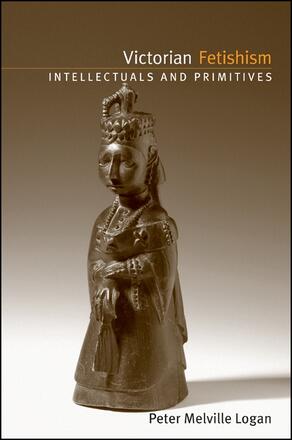
Victorian Fetishism
Intellectuals and Primitives
Alternative formats available from:
Examines the importance of fetishism in nineteenth-century cultural theory.
Description
Victorian Fetishism argues that fetishism was central to the development of cultural theory in the nineteenth century. From 1850 to 1900, when theories of social evolution reached their peak, European intellectuals identified all "primitive" cultures with "Primitive Fetishism," a psychological form of self-projection in which people believe everything in the external world—thunderstorms, trees, stones—is alive. Placing themselves at the opposite extreme of cultural evolution, the Victorians defined culture not by describing what culture was but by describing what it was not, and what it was not was fetishism. In analyses of major works by Matthew Arnold, George Eliot, and Edward B. Tylor, Peter Melville Logan demonstrates the paradoxical role of fetishism in Victorian cultural theory, namely, how Victorian writers projected their own assumptions about fetishism onto the realm of historical fact, thereby "fetishizing" fetishism. The book concludes by examining how fetishism became a sexual perversion as well as its place within current cultural theory.
Peter Melville Logan is Associate Professor of English at Temple University and the author of Nerves and Narratives: A Cultural History of Hysteria in Nineteenth-Century British Prose.
Reviews
"Victorian Fetishism is a very astute intellectual history of the nineteenth-century use of the concept of the fetish. It is also an imaginative piece of cultural criticism." — Modern Philology
"…[an] important new contribution … Logan has done Victorian scholarship a great service in reconstructing through the Victorian fetish 'a debate whose terms have been lost' (140)." — Journal of British Studies
"…Logan argues compellingly that the anthropological idea of fetishism was prominent as a way of conceptualising the absence of culture throughout the Victorian period … Victorian Fetishism displays an impressive range of analysis, across disciplines, genres and historical periods." — Review of English Studies
"…insightfully explores the very strange material and ideational status that the fetish had for a wide range of nineteenth-century thinkers … Victorian Fetishism deserves great respect for the way it explores the wide spread of Comtean notions about the fetish." — Victorian Studies
"…Logan's subtle readings of the different possible modulations of the theme of false value are intelligent, and revealing … Logan has produced a book that will prove instructive to those interested not only in Victorian intellectual history and social science, but those interested in the history of philosophy and cultural critique." — Religion and the Arts
"…effectively analyzes fetishism's centrality to literature, anthropology, and psychology by demonstrating that nineteenth-century writers and social scientists strenuously defined culture in opposition to fetishism." — Studies in English Literature
"A brilliant analysis of the centrality of fetishism to several Victorian social and humanistic disciplines: literature, anthropology, and psychology. It will surely come to be regarded as the book to read on the subject, as well as one of the most important recent contributions to nineteenth-century cultural analysis." — John Kucich, author of Imperial Masochism: British Fiction, Fantasy, and Social Class